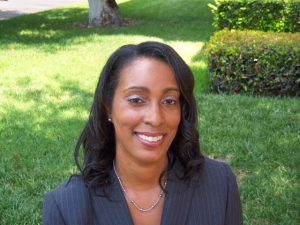From Disney to Mattel, Richardson connects to privacy work


Published:
Contributors:
Jennifer Bryant
Associate Editor
IAPP
When Kim Richardson, CIPP/US, transitioned to full-time privacy with the Walt Disney Company’s data privacy team in 2008, user-generated content and social media were the hot topics. Twelve years later, it’s all about being connected — even children’s entertainment.
“This is the thing about privacy. The technology, it just moves so fast. Now, your TV is connected, your refrigerator can be connected, everything can be connected. It’s so ubiquitous,” said Richardson, now assistant general counsel of privacy, advertising and marketing at Mattel.
Years ago, toys rode purely on imagination. Today, Mattel offers mixed play options, like Hot Wheels id, blending traditional play with a digitally connected racing system through which kids can track performance, set records and tackle new challenges.
“So you can go back and forth between the physical toy and mobile app to have a more exciting experience,” Richardson said.
Richardson's career began as a law firm IP litigator followed by various roles at Disney (including as a lawyer on the consumer products team responsible for licensing and e-commerce, which first exposed her to privacy) and includes time at Universal Studios Hollywood as vice president of legal affairs and senior director worldwide privacy counsel at Herbalife.
With advances in technology and regulatory changes happening concurrently, Richardson said the children’s space is getting a lot of attention, and there’s no doubt it will continue to be an area of focus.
“I think this is true for any privacy job, you have the strictly compliance side and then you have the product side,” she said, adding compliance work involves building policies and procedures around regulations like the U.S. Children’s Online Privacy Protection Act, EU General Data Protection Regulation and California Consumer Privacy Act. “The other side of the work is there are products that need to be reviewed to get out the door.”
At Mattel, where she joined in 2018, Richardson manages a team of 14 privacy, advertising, and standards and practices attorneys, paralegals and professionals, and said there’s a “good synergy” between the privacy, advertising and marketing aspects of her role.
“What may be surprising to people that don’t work in this space is the idea of privacy by design and how detailed and how involved into the details and design of your projects you become,” she said. “We really do have to make sure that it’s being designed with privacy in mind. It’s a different kind of practice and people have to be comfortable with that level of involvement, detail, partnership and collaboration. You need to be able to be a big picture thinker, but you also need to be very analytical and detail-oriented.
“With so many people at home these days, Mattel has launched new online experiences. American Girl doll stores that have traditionally held in-person birthday parties have hosted virtual celebrations, and Mattel created the Mattel Playroom website, offering play-from-home information and tips for parents and caregivers.”
Through her roles, Richardson found a passion for leading and capitalizing on her skills as a mentor while noticing the lack of privacy education at universities. In 2016, she began teaching as an adjunct professor of cybersecurity and regulatory compliance at Loyola Law School in Los Angeles, California. Teaching within her profession, Richardson said she’s found “the teaching supports my work and the work supports my teaching.”
She teaches students common principles she sees across laws regulating various spaces, whether it is children, finance or health care, such as transparency, choice, individual rights and security.
“I want to build the next generation of privacy professionals,” she said. “It’s really rewarding for me.”
Looking at the legislative landscape moving forward, Richardson said with the existing CCPA and recent passage of the California Privacy Rights Act, she’s closely watching what may play out on a state and federal level.
“The fact that it passed through voting says the people want this. If the people in California are saying they want this, then people in other states may start saying we want this too, and maybe we’ll see federal legislation as a result,” she said.
In her career, Richardson said she has been motivated by a desire to “put something together and make something work,” and she enjoys the interesting challenges in privacy, as well as its global scope.
“I think what’s made my career fun is that I’ve always worked in places where I contribute to the end product and it’s always something I like,” she said. “I like to think, look at this toy, website, mobile app, or marketing event — I worked on that. You see the tangible result of your work, you see how the company is succeeding, and you think, ‘I contributed to that.’ That provides a great sense of accomplishment.”
Photo by Nick on Unsplash
Editor's Note:
IAPP CEO and President J. Trevor Hughes, CIPP, willhostRichardson during the IAPP’s “Profiles in Privacy” series Dec. 16 on LinkedIn.
The opinions expressed by Kim Richardson are her own and do not necessarily represent the positions, strategies or opinions of Mattel or any of its affiliated companies or of Loyola Law School.

This content is eligible for Continuing Professional Education credits. Please self-submit according to CPE policy guidelines.
Submit for CPEs


